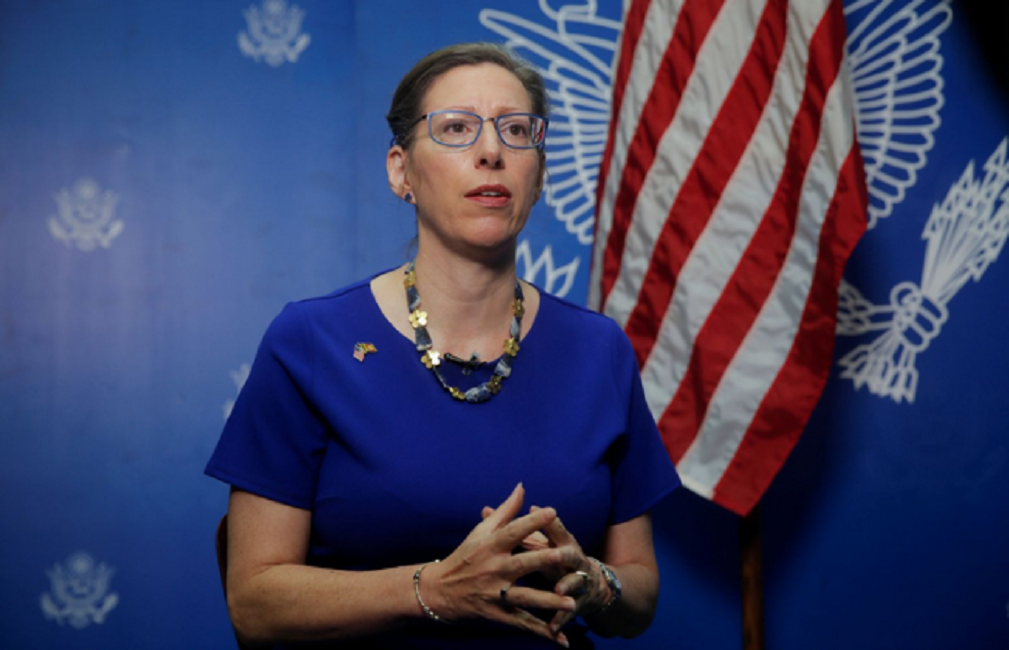The United States yesterday called on policymakers to be vigilant of the economic impact of the proposed Port City legislation, given its sweeping tax concessions and warned it could have “unintended consequences”, such as money laundering, unless proper safeguards are put in place.
US Ambassador Alaina B. Teplitz, speaking to selected journalists at a virtual media roundtable, acknowledged the importance of the USD 1.4 billion investment, but she also called on policymakers to maintain a balanced view of possible outcomes from the proposed Port City Commission Bill, which is expected to be presented to Parliament after the Sinhala and Tamil New Year.
Sri Lanka has to be vigilant against unintended consequences of ‘nefarious actors’ who may try to misuse a China-backed Colombo Port City easy business rules as a permissive money laundering haven and tax leaks, US Ambassador Alaina Teplitz warned.
Sri Lanka has unveiled draft legislation for a Colombo Port City Commission which allows for sweeping tax breaks, tax free salaries and to be an offshore financial centre.
The Port City denizens would be protected from the policy errors of the Monetary Board of the central bank and the resulting wage-earner impoverishment, brain drain, brawn drain and capital destruction that comes from the inevitable currency collapses, through dollarization.
Dollarization is expected to protect the area from balance of payments crises and exchange controls, which the Monetary Board has imposed on the rest of the island after printing money to keep rates down, allowing the Colombo Port City to be an international financial centre and avoid capital flight.
Teplitz warned that Colombo Port City’s planned ease of doing business rules may be perceived as a haven for money laundering.
“Any legislation relating to the Port City has to be considered very carefully for its economic impact,” Teplitz said.
“It also has to be considered very, very, carefully for unintended consequences. And of course, among those unintended consequences could be creating a haven for money launderers and other sort of nefarious actors to take advantage of what was perceived as a permissive business environment for activities that would actually be illegal.”
The Colombo Port City however would not be exempt from Sri Lanka’s anti-money laundering and counter-terrorism financing law which was enacted under Western backed UN initiative.
Sri Lanka’s attempts at creating numbered accounts as part of creating non-resident foreign currency accounts, after re-opening the economy in 1978, was also resisted by Western nations.

Leave your comments
Login to post a comment
Post comment as a guest